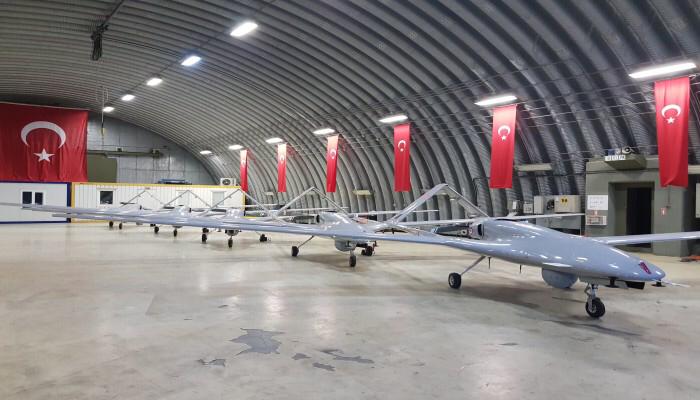Turkish – Russian relations have taken a nosedive in recent months, due to Turkish intervention in the Ukrainian crisis and favoring the Ukrainian side. Turkey provided Ukraine with Bayraktar drones that Ukraine then used in the Donbas region, which prompted Russian President Vladimir Putin to express his anger in a call with President Erdogan calling on him to stop supplying Ukraine with Turkish drones. On the other hand, Turkey offered to mediate between Russia and Ukraine to reduce the tension between them, an offer rejected by Moscow. The rising tensions between Moscow and Turkey raise questions on the motives for intervention by Turkey in the Russian – Ukrainian crisis and how this will reflect on future relations between Turkey and Russia.
Escalating tensions
Ukraine’s armed forces instigated an attack against the separatists in the Donbas region with the use of Bayraktar drones recently supplied by Turkey. This irked Russia, forcing the Russian presidency to issue on the 27th of October 2021, a warning to Turkey about exporting Bayraktar drones to Ukraine which could influence the outcome of the conflict in Donbas. Russian President Vladimir Putin had a phone call with the Turkish president, Erdogan, where he criticized Ukraine’s use of the Bayraktar drone in the Donbas region and warned that this behavior is destructive.
Turkey responded through its foreign minister that it will not take responsibility for how Turkish-built drones are used. This was further affirmed by the spokesperson of the Turkish presidency in an interview with the Anadolu News Agency, that Turkey has good relations with both Ukraine and Russia and will do its utmost to decrease tensions between both neighbors.
In a detailed report, Bloomberg mentioned that the number of drones that Ukraine bought was more than previously announced. The news agency also reported that the Turks had sold to Ukraine a large amount of these drones in 2019 as well, as its missiles & command and control centers. The Bloomberg report also mentioned that a deal would soon be concluded to organize joint production for missiles between Ukraine and Turkey for the “Zenit -2” Ukrainian missiles.
Turkish motives
Turkish engagement in the ongoing crisis in Ukraine is driven by several factors, including:
Supporting Crimean Muslims: Turkey is specifically interested in the status of Crimean Muslims in Ukraine, as it views this minority as belonging to the Turkish ethnic family. The Turkish Crimeans have taken a hostile stance to the Russian intervention there, which made them a target for Russian authorities. Turkey on its part has not recognized Russia’s annexation of Crimea and supports the right of Ukraine to maintain its territorial integrity and sovereignty over all its lands.
Interests in the Black Sea: The Black Sea has a huge geostrategic importance for Russia, as it provides the largest naval base in the Black Sea and is home to the Russian Black Sea Fleet. Turkey therefore perceives that it is in its own interest to coordinate with Ukraine, to limit Russia’s influence in the area. Limiting Russian activity on Turkey’s northern borders is especially important at this stage, given that the Russia has a military presence in Syria, on Turkey’s southern border. Turkey is also seeking to exploit the Black Sea in gas mining operations
Gaining leverage: Turkey is seeking to strengthen its hand in negotiating with Russia, as the two countries have crossed paths in Syria, Libya, Central Asia, and the Caucuses. The Ukrainian crisis is a chance for Turkey to gain more leverage regarding these issues, particularly in Libya with upcoming elections. Libya is at present a central issue for Turkey, and it is at odds with Russia’s agenda there, and it also seeks a voice in the Syrian settlement, for which it must also deal with Russia.
Economic considerations: Considering the current economic crisis in Turkey, with the Turkish Lira hitting record lows against the dollar, Erdogan is looking to expand Turkey’s exports of military hardware, especially the Bayraktar drones, to eastern European countries. Ukraine provides a gateway to this market.
Improving relations with the Biden Administration: Turkish drones have become a useful tool in improving relations with the current American administration, as they have a track record of success against Russian weaponry. Turkey wants to present itself as a partner for the US in facing up to Russian threats in Europe, despite its acquisition of the Russian S-400 missile defense system. Turkey sees itself as establishing a “Drone Crescent” to curtail Russia in the Crimean region.
Improving relations with Europe: The EU seeks to avoid any confrontation between Russia and Ukraine due to the ongoing military buildup on the Ukrainian border by Russia. The EU perceives this situation as a direct threat to its interests in Eastern Europe, and therefore welcomes Turkey’s offer to mediate between Ukraine and Russia.
Winning the Voters: President Erdogan seeks to gain points with his domestic electorate, in view of worsening economic conditions so close to upcoming elections. Therefore, presenting himself as a defender of the Muslim minority in the Crimean would help maintain his image as the defender of the Turkish ethnicity in the region.
Although Turkish- Russian relations in the last few years have shifted, vacillating between cooperation and competition, this latest crisis has brought them to new lows. Turkey’s support to Azerbaijan helped it gain back the Nagorno-Karabakh region by force from Armenia, and now Ukraine is expecting similar support. This could situation could therefore lead to a complete collapse of relations between Russia and Turkey.


